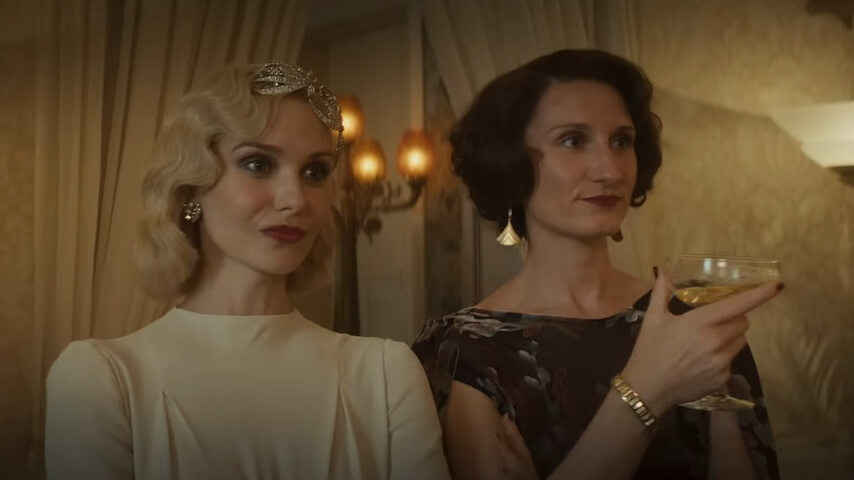Despite being set almost a century ago, Outrageous couldn’t feel more timely
The BritBox series masterfully blends witty dialogue with a dire historical warning.
Screenshot: YouTube/BritBox
At first (meticulously applied) blush, BritBox’s Outrageous may seem like a dishy period piece in the vein of Downton Abbey or Pride And Prejudice. And it is a fun romp packed with delicious 1930s fashions, illicit affairs, and sibling feuds. But it’s also a harrowing chronicle of the rise of fascism in Europe. That’s quite an audacious elevator pitch. But against all odds, the show masterfully blends witty dialogue with a dire historical warning.
Just like it says on the tin, the premise of Sarah Williams’ miniseries is, indeed, outrageous. It also happens to be true. The story centers on the Mitfords, an aristocratic brood living on a sprawling estate in 1930s Oxfordshire. More specifically, it traces the scandalous, soap-operatic lives of the family’s six daughters, who were infamous for their widely varying political leanings.
Diana (Joanna Vanderham) is the beauty of the family, but beneath her slinky gowns beats the heart of an ardent totalitarian who’s in love with Oswald Mosley (Joshua Sasse), the head of the British Union of Fascists. The teenage Unity (Shannon Watson) goes to an even darker place: Her fangirlish adoration of Adolf Hitler takes her all the way to Munich—and, before long, lands her a spot in the Führer’s inner circle. This puts her at stark odds with Jessica (Zoe Brough), whose devotion to communism makes her the blackest sheep in a family full of them.
The other three prefer to steer clear of the headlines. Cool, collected Pamela (Isobel Jesper Jones) buys a car to travel the continent; and the youngest Mitford, Deborah (Orla Hill), is content to nurse a crush on a wealthy older man (played by Jack Michael Stacey). At the center of it all—though she’d much prefer not to be—is Nancy (Bridgerton‘s Bessie Carter), the wry, observant eldest sibling. She serves as both the series’ narrator and the family’s reluctant peacekeeper, but all she wants is to write comedic novels and get hitched before she becomes an old maid. And then there are the parents: Sydney Bowles (Anna Chancellor), who does what she can to keep her daughters’ names out of the papers, and Baron David Freedman-Mitford (James Purefoy), who’s too distracted by the estate’s precarious financial situation to notice his family plunging toward ruin.
